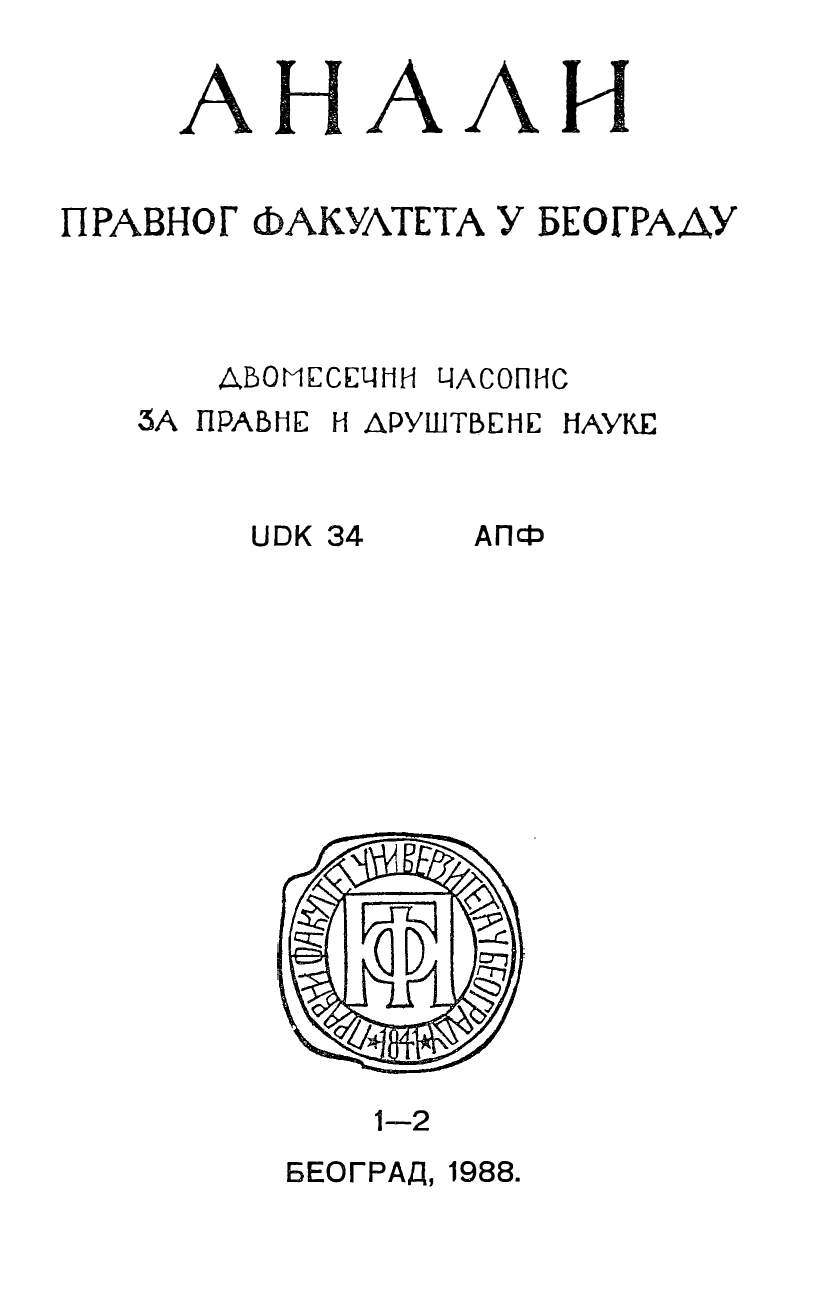КРИВИЧНИ ПРОЦЕС И ИЗРИЦАЊЕ МЈЕРА БЕЗБЈЕДНОСТИ
CRIMINAL PROCEDURE AND CIVIL COMMITMENT FOR THE CRIMINALLУ INSANE
Author(s): Boštjan M. ZupančičSubject(s): Law, Constitution, Jurisprudence, Criminal Law
Published by: Правни факултет Универзитета у Београду
Summary/Abstract: The author addresses questions he considers preliminary to any particular legal, positivist issues that might arise in the Yugoslav criminal procedure for the commitment of the criminally insane He maintains that the procedure which is now incompletely regulated cannot rely upon the criterion of the actor’s social danger as the decisive legal yardstick for the commitment. The criterion as such would perhaps even be acceptable, were it more specific, concrete and articulated, which in turn would even make possible the monocentric organization of the adjudication in matters of commitment of the criminally insane. Article 63(1} of the Criminal code of Yugoslavia establishes the above criterion of danger for the environment as decisive; as pointed out this criterion is not sufficiently specific. The additional problem with the above criterion of danger for the environment derives from the fact, that it addresses a future probability of a criminal event, rather than a past certainty of a completed criminal act. The assessment of this probability rests upon a very incomplete induction, i.e., upon a simple verdict of guilty for one single criminal act. The author takes into account the fact that even the punishment for a past event addresses not the act 'as such, but rather the actor’s very being: criminal responsibilities simply a symptom of the blameworthy nature of the actor. However, the law deals with the act rather than the being of the actor, because the former is specifically ascertainable, whereas the letter is not directly provable.
Journal: Анали Правног факултета у Београду
- Issue Year: 36/1988
- Issue No: 1-2
- Page Range: 83-98
- Page Count: 16
- Language: Croatian

